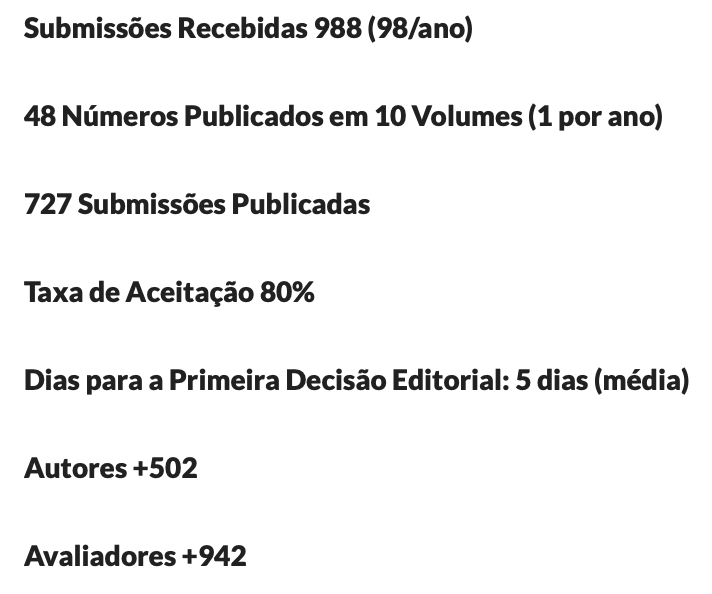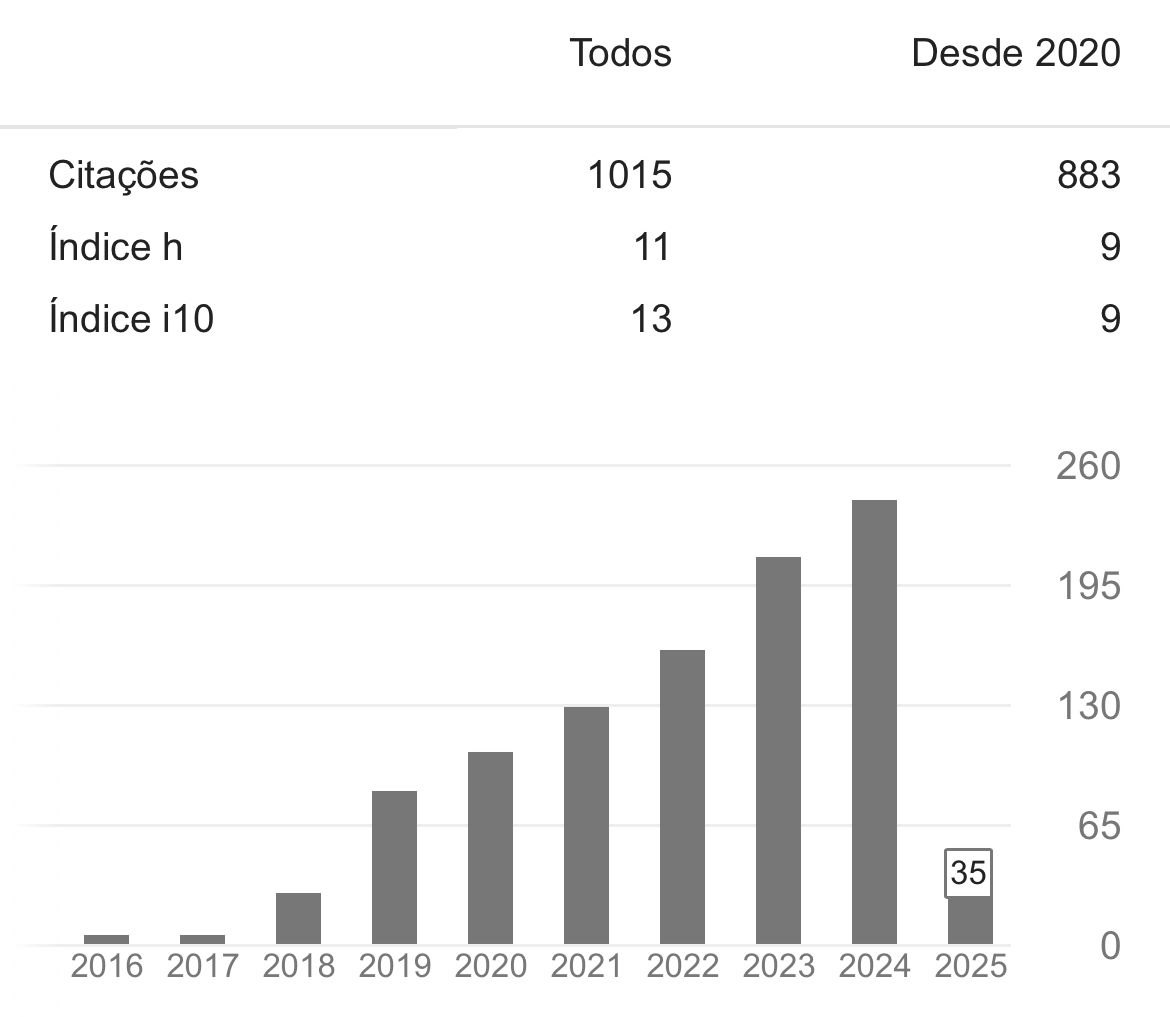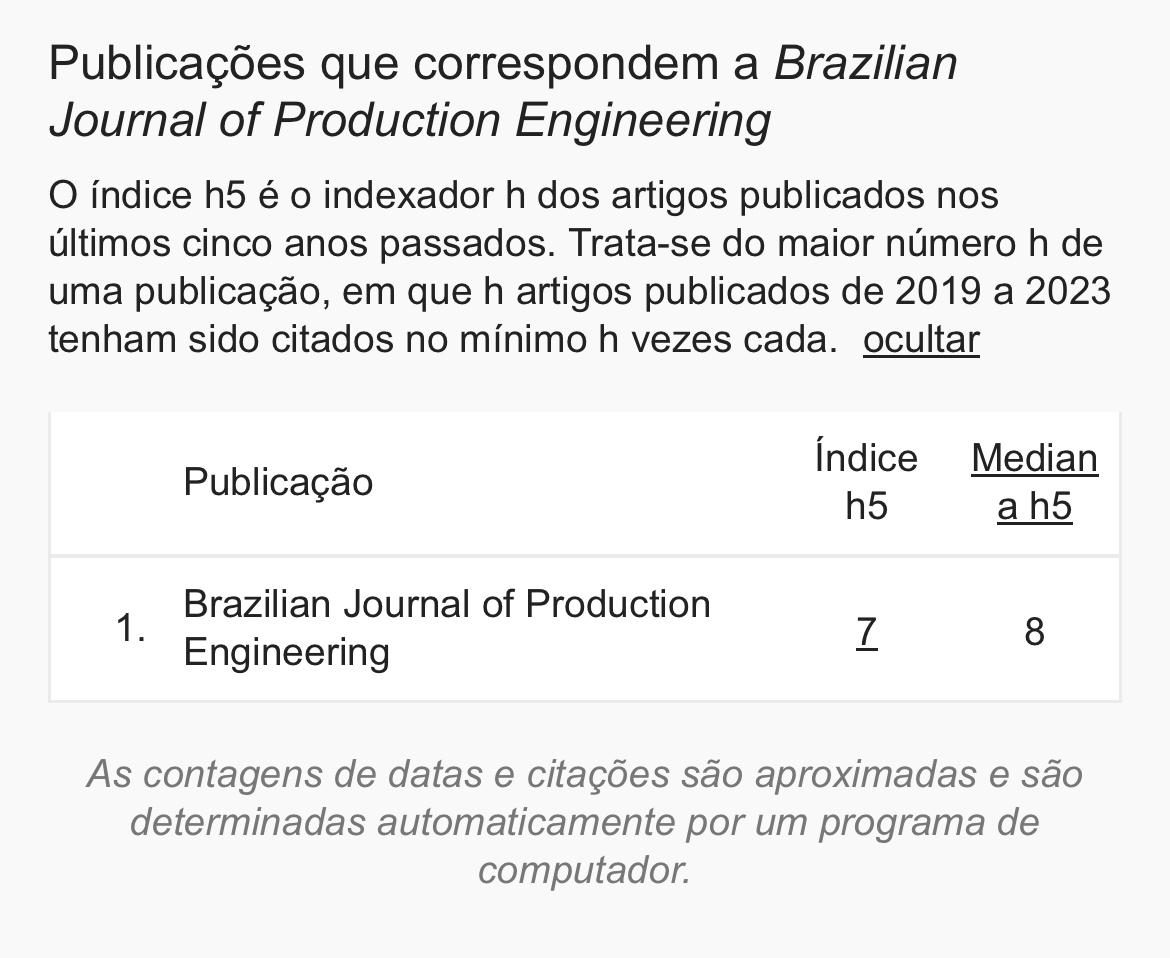Efficiency analysis of sustainable development in Brazil and OECD countries
DOI:
https://doi.org/10.47456/bjpe.v7i5.36133Keywords:
Indicators of Sustainability, DEA, Sustainable Development, OECD, BrazilAbstract
The development of a country is not related to only its economic growth, once its sustainable development should consider social, economic and environmental aspects. This work intends to measure and analyze the efficiency of sustainability in Brazil comparing to other countries of OECD (Organization for Economic and Cooperation Development), understanding the current ambition of Brazil to compose the OECD. This analysis used a mathematical programming method called Data Envelopment Analysis (DEA), which enabled, from the SBM model and the window analysis, to evaluate the ability of countries to reduce the imputs (CO2 emission, energy consumption, unemployment rate and Gini index), as well as to increase the outputs (life expectancy, GDP, sustainable energy, sanitation of quality). The comparison between the countries was made using the sustainable efficiency ranking and the results of this study indicated that the Latvia and Chile is the most eficiente and in the fourth place there is Brazil. Moreover, relative slacks were analyzed and it was concluded that, although Brazil is not a benchmark in any variable, its slacks are relatively low. The index measured is important to contribute to the discussions related to evaluating the countries sustainability, helping to identify those with the best practices with regard to social, economic and environmental aspects; and guide policy decisions regarding government incentives to promote the development of countries in search of more sustainable production.
Downloads
References
Agenda 21 Global (1992). Integração entre meio ambiente e desenvolvimento na tomada de decisões. p.4. Rio de Janeiro. Retrieved from http://www.mma.gov.br/estruturas/agenda21/_arquivos/cap08.pdf
Apergis, N., & Payne, J. E. (2010) Renewable energy consumption and economic growth: Evidence from a panel of OECD countries. Energy Policy. 38, 656-660, ISSN 0301-4215, https://doi.org/10.1016/j.enpol.2009.09.002
Arndt, C., Arent, D., Hartley, F., Merven, B., & Mondal, A. H. (2019). Faster Than You Think: Renewable Energy and Developing Countries Annual Review of Resource Economics. 11(1), 149-168. Retrieved from https://www.annualreviews.org/doi/abs/10.1146/annurev-resource-100518-093759
Azar, C., Holmberg, J., & Lindgre, K. (1996) Social-ecological indicators for sustainability. Ecological Economics, 18, 89-11.
BNEF. (2015). Global Trends in Renewable Energy Investment 2015. Frankfurt am Main: Bloomberg New Energy Finance/Frankfurt School/UNEP Centre.
Bossel, H. (1997). Deriving indicators of sustainable development. Environmental Modeling and Assessment, 1, 193-218.
Camioto, F. C., Mariano, E. B., Santana, N. B., Yamashita, B. D., & Rebelatto, D. A. (2018). Renewable and Sustainable Energy Efficiency: An Analysis of Latin American Countries. Environmental Progress & Sustainable Energy. 37(6). https://doi.org/10.1002/ep.12877
Charnes, A., Cooper, W. W., Lewin, A. Y., & Seiford, L. M. (1994). Date Envelopment Analysis. Theory, Methodology and Applications. Springer Science & Business Media.
Coelli, T. J. et al. (2005). An Introduction to efficiency and productivity analysis. Ed. 2.
Cooper, W. W., Seiford, L. M., & Tone, K. (2006). Introduction to data envelopment analysis and its uses: with DEA-solver software and references. Springer Science & Business Media.
Dhahri, S., & Omri, A. (2018). Entrepreneurship contribution to the three pillars of sustainable development: What does the evidence really say? World Development, 106, 64-77.
Elkington, J. (1997). Cannibals with Forks: The Triple Bottom Line of Twenty-First Century Business. Oxford: Capstone Publishing Ltd.
Endenhofer, O. et al. (2008). Climate Change 2014: Mitigation of Climate Change, Contribution of Working Group III to the Fifth Assessment Report of the Intergovernmental Panel on Climate Change. Cambridge University Press. United Kingdom/ New York.
Gaspar, J. S., Marques, A. C., & Fuinhas, J. A. (2017) The traditional energy-growth nexus: A comparison between sustainable development and economic growth approaches. Ecological Indicators, 75, 286-296.
Jabbour, C. J. C., & Santos, F.C.A. (2009) Sob os ventos da mudança climática: desafios, oportunidades e o papel da função produção no contexto do aquecimento global. Gest. Prod., 6(1), 111-120.
Luukkanen, J. et al. (2019). Green economic development in Lao PDR: A Sustainability Window analysis of Green Growth Productivity and the Efficiency Gap, Journal of Cleaner Production, 211, 818-829.
Megyesiova, S, & Lieskovska, V. (2018). Analysis of the Sustainable Development Indicators in the OECD Countries. Sustainability, 10, https://doi.org/10.3390/su10124554
Minh, H., V., & Nguyen-Viet, H. (2011). Economic Aspects of Sanitation in Developing Countries. Environmental Health Insights. 5, 63-70. https://dx.doi.org/10.4137%2FEHI.S8199
Nações Unidas no Brasil. (2015). Transformando Nosso Mundo: A Agenda 2030 para o Desenvolvimento Sustentável. Retrieved from https://nacoesunidas.org/pos2015/agenda2030/
OECD. (2006). Good Practices in the National Development Sustainable Development Strategies of OECD countries. Paris. http://www.oecd.org/greengrowth/36655769.pdf
OECD. (2018). OECD Economic Surveys: Chile 2018, OECD Publishing, Paris. http://dx.doi.org/10.1787/eco_serveys-chl-2018-en
OECD. (2019). OECD Environmental Performance Reviews: Latvia 2019, OECD Environmental Performance Reviews, OECD Publishing, Paris. https://doi.org/10.1787/2cb03cdd-en
OECD. (2018). OECD Environmental Performance Reviews: Brazil 2018, OECD Environmental Performance Reviews, OECD Publishing, Paris. https://doi.org/10.1787/2cb03cdd-en
OECD. (2016). OECD Environmental Performance Reviews: Chile 2016, OECD Environmental Performance Reviews, OECD Publishing, Paris. https://doi.org/10.1787/9789264252615-en
Penedo, A. S. T., et al. (2016). International socio-environmental conferences and agreements: a thematic review. Revista em Agronegócio e Meio Ambiente, Maringá, 9(3).
Rashidi, K., Shabani, A., & Saen, R. F. (2015). Using data envelopment analysis for estimating energy saving and undesirable output abatement: a case study in the Organization for Economic Co-Operation and Development (OECD) countries. Journal of Cleaner Production. 105, 441- 252.
Santana, N. B., Mariano, E. B., Camioto, F. C., & Rebelatto, D. A. N. (2015). National innovative capacity as determinant in sustainable development: a comparison between the BRICS and G7 countries. Int. J. Innovation and Sustainable Development. 9 (3-4).
Sebastian, J., & Sebastian, W. (2016). Financial development and income inequality: a panel data approach. Empirical Economics, 51, 291-314.
Shafiei, S., & Salim, R. (2014). Non-renewable and renewable energy consumption and CO2 emissions in OECD countries: A comparative analysis. Energy Policy. 6, 547-556. http://dx.doi.org/10.1016/j.enpol.2013.10.064
Shen, Z., Boussemart, J., & Leleu, H. (2017). Aggregate green productivity growth in OECD’s countries. Int. J. Production Economics. 189, 30-39.
Song, M. L., Zhang, L. L., Liu, W., & Fisher, R. (2013). Bootstrap-DEA analysis of BRICS' energy efficiency based on small sample data. Appl. Energy. 112, 1049-1055
Sustainable Development. (2015). The 17 sustainable development goals. Retrieved from https://www.un.org/sustainabledevelopment/sustainable-development-goals/
Szopik, K. et al. (2018). The study of relationship in a hierarchical structure of EU sustainable development indicators. Ecological Indicators, 90, 120-131.
Thévenot, C. (2017). Inequality in OECD countries. Scandinavian Journal of Public Health. 45, 9-16. Retrieved from https://journals.sagepub.com/action/doSearch?target=default&ContribAuthorStored=Th%C3%A9venot%2C+Celine
Tone, K. (2001). A slacks-based measure of efficiency in data envelopment analysis. European Journal of Operational Research, 130(3), 498-509.
Tuon, L. (2020). O que falta para o Brasil entrar nos padrões da OCDE, o “clube dos ricos”. Exame. 18 jan. 2020. Retrieved from https://exame.abril.com.br/economia/o-que-falta-para-o-brasil-entrar-nos-padroes-da-ocde-o-clube-dos-ricos/
UN General Assembly. (2005). World Summit Outcome: resolution / adopted by the General Assembly. A/RES/60/1, 2005. Retrieved from https://www.refworld.org/docid/44168a910.html
United Nations. (1987). Our common future: World Commission on Environment and Development. Oxford University Press. Retrieved from https://sustainabledevelopment.un.org/content/documents/5987our-common-future.pdf
United Nations. (2012). The future we want: Outcome document of the United Nations Conference on Sustainable Development. Rio de janeiro. Retrieved from https://sustainabledevelopment.un.org/content/documents/733FutureWeWant.pdf
Van Bellen, H. M. (2002). Indicadores de Sustentabilidade: Uma Análise Comparativa. 2002. 235f. Tese de Doutorado em Engenharia de Produção, Universidade Federal de Santa Catarina, Florianópolis.
Wang, K., Lu, B., & Wey, Y.M. (2013). China's regional energy and environmental efficiency: arrange-adjusted measure-based analysis. Applied Energy. 112, 1403-1415. Retrieved from https://www.researchgate.net/deref/http%3A%2F%2Fdx.doi.org%2F10.1016%2Fj.apenergy.2013.04.021
Wang, Y. M, & Chin, K. S. (2010). Some alternative models for DEA cross-efficiency evaluation. Int. J. Production Economics. 128, 332- 338.
Wilson, J. P. (2014). The triple bottom line Undertaking an economic, social, and environmental retail sustainability strategy. International Journal of Retail & Distribution Management. 45(4/5), 432-447.
World Bank. (2020). World Development Indicators. 2020. Retrieved from http://datatopics.worldbank.org/world-development-indicators/
Xie, B, C., Bai, C., Shang, L.-F., Yang, S.-B., & Yi, B. W. (2014). Dynamic environmental efficiencyevaluation of electric power industries: evidence from OECD (Organization for Economic Cooperation and Development) and BRIC (Brazil, Russia, India and China) countries. Energy, 74, 147–157.
Zafar, M, W., Shabaz, M., Sinha, A., Sengupta, T., & Qin, Q. (2020). How renewable Energy Consumption Contribute to Environmental Quality? The Role of Education in OECD Countries. Journal of Cleaner Production. 268, 2020.
Zhou, H., Yang, Y., Chen, Y., & Zhu, J. (2018). Date envelopment analysis application in sustainability: The origins, development and future directions. European Journal of Operational Research. 264, 1-16.
Zhou, P., Ang, B. W. (2008). Linear programming models for measuring economy-wide energy efficiency performance. Energy Policy. 36, 2911-2916.
Downloads
Published
How to Cite
Issue
Section
License
Copyright (c) 2021 Brazilian Journal of Production Engineering - BJPE

This work is licensed under a Creative Commons Attribution-NonCommercial-ShareAlike 4.0 International License.

















































































